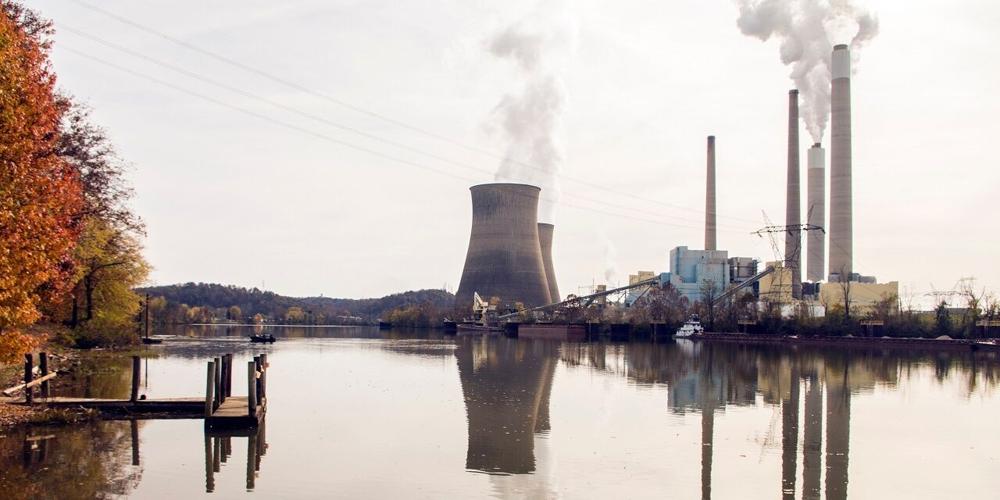
AEP’s John E. Amos Power Plant located in Winfield.
CHARLESTON – West Virginia has always been an energy state. Our story is one of labor, resourcefulness and resilience.
But it’s more than a story of energy production. It’s a story about people, jobs and the backbone of American manufacturing.
For more than a century, West Virginians have fueled not just homes and industries but entire economies. Energy in West Virginia isn’t an abstract concept. It’s real. It’s dirty boots, 12-hour shifts and a job you can build a life around. And those jobs don’t just exist at the wellhead or the coal mine. They stretch across supply chains into manufacturing shop floors, transportation hubs and equipment yards.

Bissett
When energy is strong in West Virginia, manufacturing thrives. When manufacturing thrives, communities grow.
That’s why our energy identity must be protected — not out of nostalgia for some bygone era, but because it remains central to economic opportunity and national strength.
Our state already has extensive energy infrastructure and the grit required to power and build America. What we need now is recognition by state and federal policymakers as well as private industry that the path to energy security runs through states such as West Virginia, not around them.
That future must include natural gas power generation with other existing generating facilities, which continue to create jobs and drive manufacturing here at home. It must include investments in advanced manufacturing, particularly in industries such as steel, chemical and energy equipment production. These industries have deep roots in our state and still offer strong career pathways for working families.

Burd
We need a national energy strategy that values production and workers. That means making room for traditional energy, supporting innovation without abandoning the assets that already work and directing incentives to communities that have long carried the load.
West Virginia’s leaders have been pushing to make the state a hub for industrial growth tied to energy. The recent focus on petrochemical development, natural gas liquids and regional manufacturing investment is a promising sign. House Bill 2014, signed into law a few weeks ago, builds on that momentum by prioritizing local energy production and grid resilience. The bill positions West Virginia to better serve industrial users, protect critical infrastructure and ensure that energy-intensive industries have the reliable power they need to grow right here at home. Future development of microgrids for manufacturing are a promising next step for the Mountain State as we further develop our energy resources here at home.
Events such as the West Virginia Manufacturers Association’s WV MEG Summit also help keep the spotlight on the opportunities ahead. These gatherings are more than networking and keynote speeches. They are a place for rea conversations between industry, labor and policymakers about how to grow jobs, attract investment and compete nationally. They reinforce what many of us already know: West Virginia is open for business, ready to lead and determined to grow.
And key to keeping West Virginia competitive are tax credits for nascent industries including hydrogen and CCS (45V and 45Q), nuclear (45U), as well as advanced manufacturing (45X).
While still emerging, these opportunities are gaining attention as tools in America’s energy toolbox, especially for heavy industry in regions like ours. For West Virginia, these could yield even more to turn our abundant energy resources and infrastructure into new jobs, provided the policy is implemented fairly and with our strengths in mind.
The key will be making sure new energy investments, whether in hydrogen, carbon capture or advanced manufacturing, flow to energy states like ours where they can build on existing strengths instead of trying to reinvent the wheel.
West Virginia has shown time and again that when given the opportunity, we can power the nation. Energy is what we do. It’s who we are. And with the right incentives, it’s how we’ll keep building what’s next.
Bissett is president of the West Virginia Manufacturers’ Association. Burd is president of the Gas & Oil Association of West Virginia.









